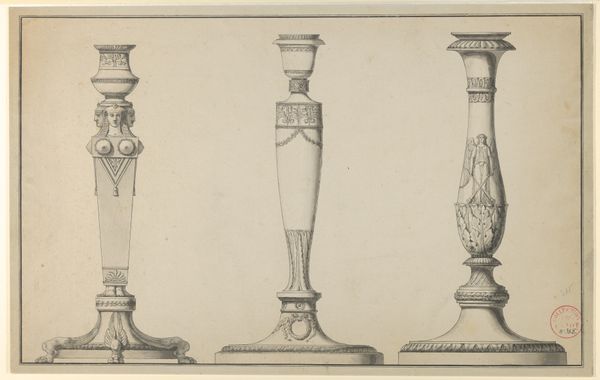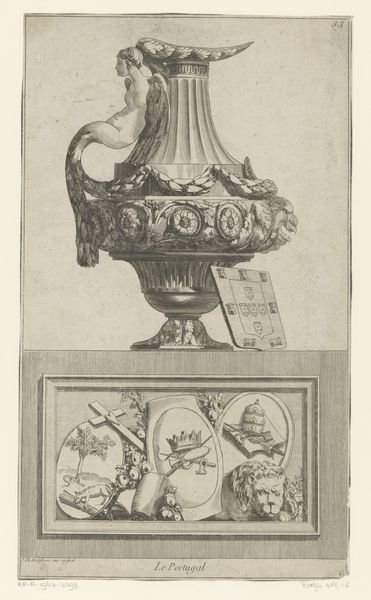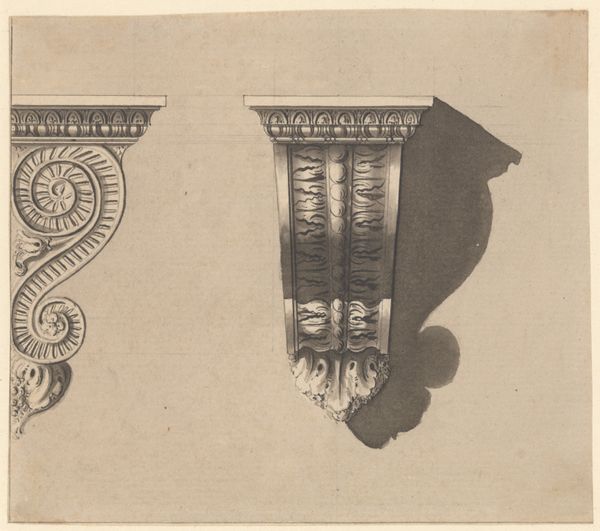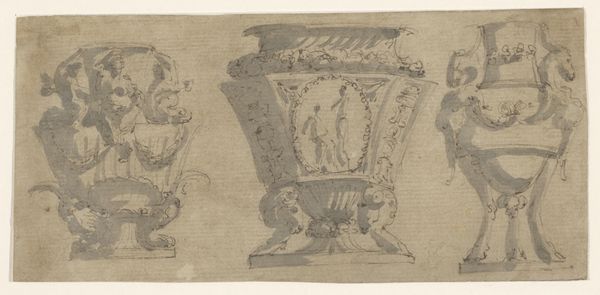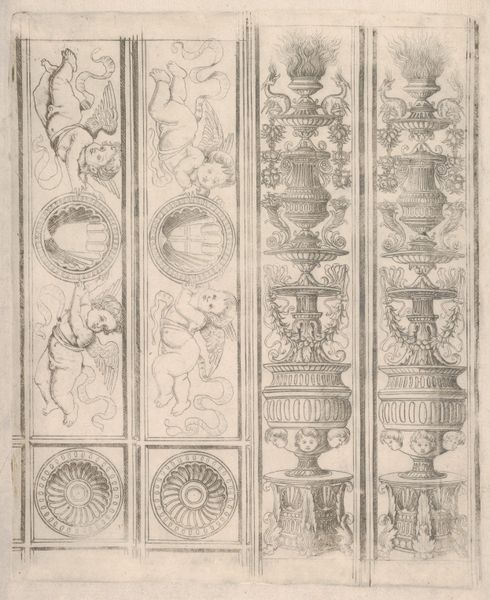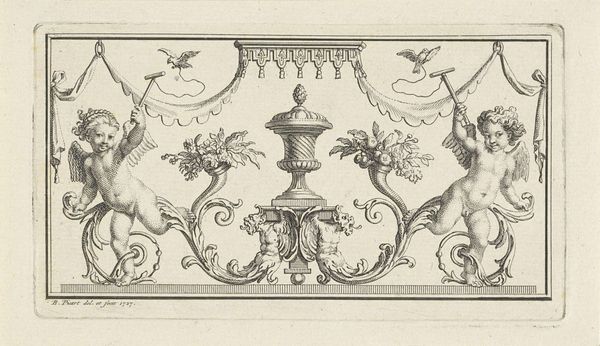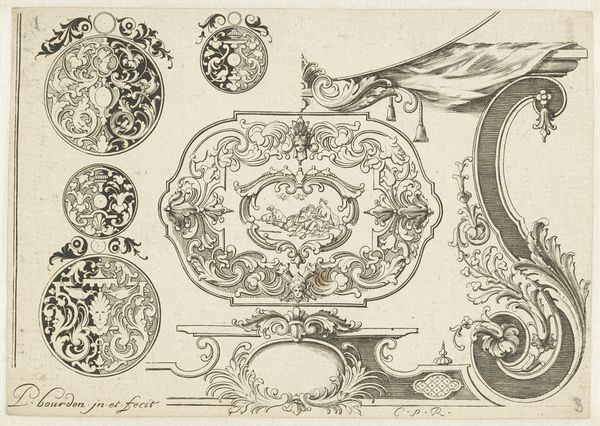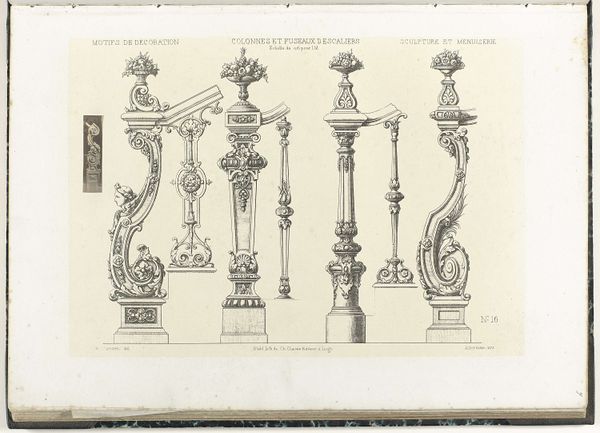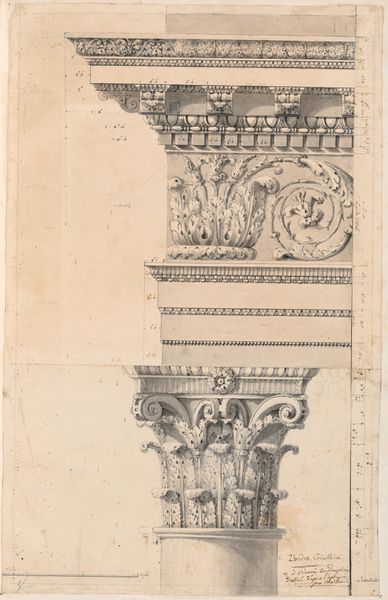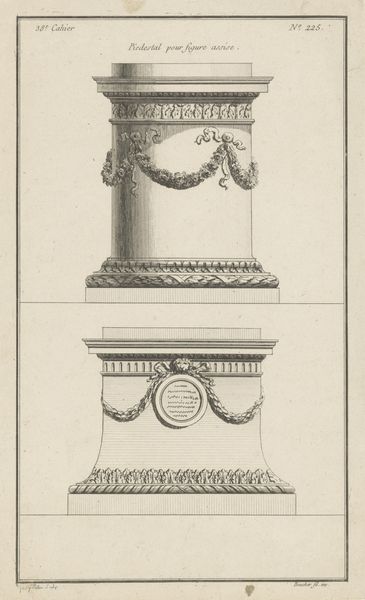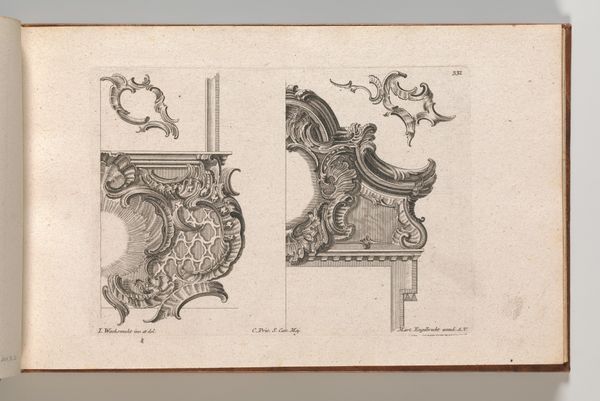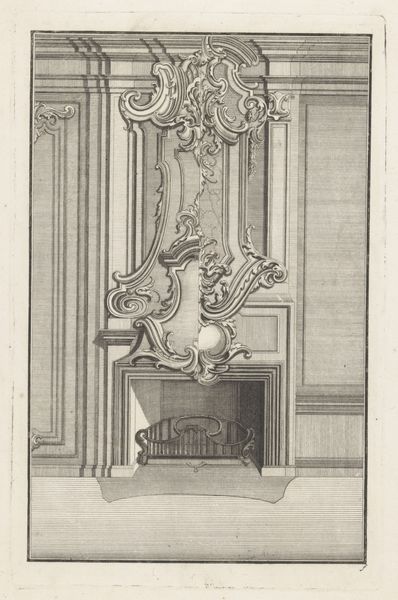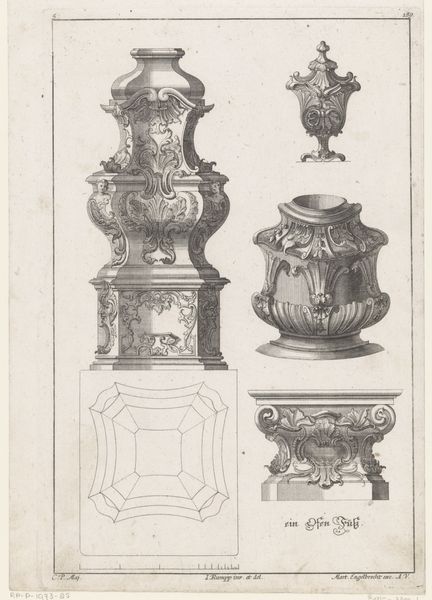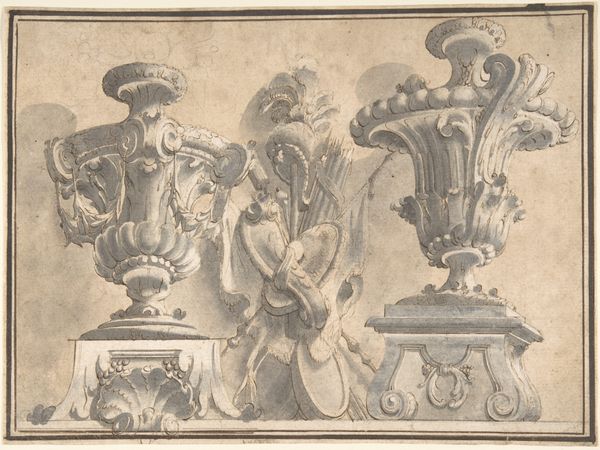
drawing, graphic-art, print, metal, engraving
#
drawing
#
graphic-art
#
baroque
# print
#
metal
#
old engraving style
#
form
#
geometric
#
line
#
academic-art
#
decorative-art
#
engraving
Dimensions: height 188 mm, width 287 mm
Copyright: Rijks Museum: Open Domain
Editor: This is Hendrick Hondius I’s print, “Composiete Kapitelen,” made between 1606 and 1620. It seems like it’s a study of different variations on composite capitals. The engraving’s intricate lines and the play of light and shadow across the foliage are quite mesmerizing. How would you interpret this work from a formalist point of view? Curator: Well, the primary focus is the rigorous articulation of form. Look at how Hondius employs line to delineate the different components of each capital, the acanthus leaves, the volutes. Notice the systematic progression from base to capital. Editor: Yes, I see that. There's a strong sense of order and precision, but at the same time, there’s that organic flow within the leaf carvings. Does the contrast matter? Curator: Precisely. It's in the tension between the geometric structure and the organic ornamentation where the engraving achieves its visual interest. Consider also the spatial relationships created through hatching and cross-hatching, suggesting depth and volume on a two-dimensional surface. The formal interplay reveals an almost mathematical elegance underlying the baroque exuberance. Editor: So, the emotional or historical meaning isn't really the point; it's more about appreciating how it's put together, like an anatomy lesson for architecture? Curator: Indeed. It’s about understanding the visual language, the grammar of form, and how those elements combine to create a self-contained aesthetic system. The print functions as a testament to the power of representation and the intrinsic beauty of structure and detail. Editor: I’ve never considered art in such a detached, structural way before! I am accustomed to layering context to interpret images and understand its significance, and yet, through line and form, it is also beautiful in its composition.
Comments
No comments
Be the first to comment and join the conversation on the ultimate creative platform.
